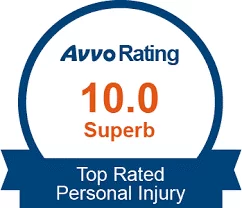How Not to Make a Bad Situation Worse
Your spouse was in a bad vehicle accident, they’re seriously injured, they’re in the hospital. You’re stressed, you’re worried, the kids are worried, there’s too much to think about, there’s too much to do in too little time. No one disputes that your family is in a bad situation. But it could still be worse.
We don’t mean it philosophically, as if to downplay the severity of your situation. We mean if you’re not careful, you could make the situation worse. Sometimes human nature gets in the way of basic reason and logic, and we end up doing self-defeating things. For example, a drowning man in a pool will instinctively flail around trying to stay afloat, but that action actually puts him in more jeopardy. If he does it while someone is trying to rescue him, it could cause both people to drown. The key to staying afloat and avoid drowning is to relax and let our bodies float naturally—the exact opposite of what our natural impulses tell us to do.
In the same way that the drowning man needs to resist his impulses, you may need to resist some natural human tendencies in order not to get in the way of your spouse’s recovery process during a crisis. Let’s look at some common ways people make a bad situation worse, and how to avoid aggravating a serious situation?
Going into Denial
Denial is a strong human tendency, a natural defense mechanism. In some ways, it’s a way for our minds to go into shock. If you let yourself go into denial as to the seriousness or your spouse’s condition, you may be more likely to ignore certain warning signs that could put them in jeopardy. You might also procrastinate important details or fail to make a plan on the home front because you’re telling yourself your husband or wife will be “back to normal” in no time.
Avoiding this snare: Denial is a challenging foe because people who are in denial don’t know they’re in denial—because they’re in denial! Just admitting that you could be in denial is an important step. From the moment the accident occurs (or you get word of it), try making a conscious decision to face the truth as you find it, no matter how difficult. Ask someone you recognize as a “truth-teller” to hold you accountable during this time and to keep you grounded in reality so you can make good decisions.
Going Into “Shutdown Mode”
Another common human reaction to trauma is to “shut down”—to freeze and basically stop functioning. A deer in headlights might be a good analogy. When you allow yourself to go into shutdown mode, things simply don’t get done. You may neglect details like picking up the kids from school, preparing meals or even doing basic hygiene. You can’t make important decisions, and your spouse and kids may ultimately feel abandoned.
Avoiding this snare: Shutdown mode is a protective technique, so remind yourself that you’re not the person who needs protecting right now. As best as possible, make a conscious decision to face whatever pain or difficulty might stand in front of you. Your spouse and your kids need you to be present.
Making It About You
You’re going to be scared. You’re going to be frustrated. You’re going to feel overwhelmed. You’re going to feel lost, disoriented, confused, out of control, etc., etc. Those feelings are all real and they are human. But they also pale in comparison to what your spouse is going through. If you forget this fact and start looking at everything through the lens of how you feel, you’re apt to start griping and complaining to your kids, your friends, your family and even your injured spouse about what you’re going through. It may or may not put your wife or husband in further jeopardy, but it could certainly do damage to your relationships.
Avoiding this snare: As you enter what we call “crisis mode” with this injury accident, make a conscious decision to be a giver first. Right now, it’s about your spouse, not about you. Remind yourself of this truth every day, out loud if necessary. If you must find a place to vent or feel sorry for yourself, do it somewhere away from your spouse. Talk to an understanding friend, or even a therapist—someone who can let it roll off.
All told, these three pitfalls share something in common: You can basically avoid all of them by staying in the moment, no matter how painful. Address the crisis as the crisis unfolds, and avoid the temptation to compensate. Stop flailing around in the pool, relax and float. You’ll make much better decisions for your spouse and your family, as well as yourself.
As soon as possible after an injury accident, you need to talk with an experienced attorney who can help your spouse get the compensation they need and deserve. To learn more, call Greathouse Law at 678-310-2827 for a free evaluation.


